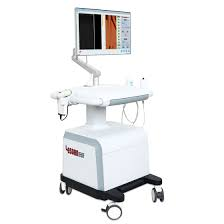How Does This New Medical Device Delay Diabetic Neuropathy Pain?
To put it bluntly, the pain caused by diabetic neuropathy can be debilitating. There are countless treatments that can help to relieve this pain, but nothing has yet been found to offer a complete solution.
How does it work?
The device is called a transcutaneous electrical nerve stimulator (TENS) and it works by sending an electrical current through the skin directly to the nerves. This current interrupts the pain signals that are being sent to the brain, which can eventually reduce or stop the pain.
How it helps the diabetic patient
People with diabetes experience a wide array of chronic pain due to nerve damage caused by the disease. This new medical device, called The Neuropathy Pain Delay Device, has been designed to help these patients by delaying the onset of this nerve damage.
The Neuropathy Pain Delay Device is a small, wearable device that is inserted under the skin on the chest or upper arm. It uses electrical stimulation to send mild pulses to the nerves in the area that is causing pain. Over time, these pulses help to reduce the amount of pain felt by the patient.
The Neuropathy Pain Delay Device was developed by Dr. Ravi Kumar and his team at Memorial Sloan-Kettering Cancer Center in New York City. The device has been successfully tested in clinical trials on patients with diabetic neuropathy pain. The results have shown that it can delay the onset of this nerve damage and help to improve the patient’s quality of life.
The Neuropathy Pain Delay Device is currently available for purchase through Memorial Sloan-Kettering Cancer Center’s website.
Conclusion
It is evident that the new medical device delays diabetic neuropathy pain. Patients who have to undergo surgery will no longer experience intense pain after the procedure. In fact, many patients may not even know they are having surgery because they will no longer feel the pain from their diabetes. This medical device is a game-changer for those living with diabetes and those who care for them.




Comments
Post a Comment